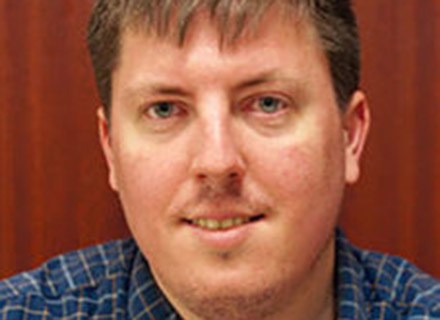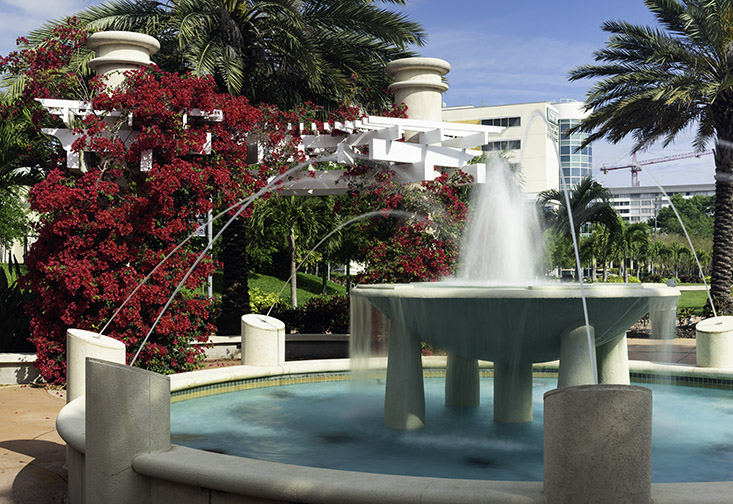David Trigaux fell into the world of debate by mistake. During high school, he ended up with debate as a class “because I had to pick something,” said Trigaux.

He never knew that fateful choice would bring him to his rewarding career of building the leaders of tomorrow as Executive Director of the Washington Urban Debate League.
At the Washington Urban Debate League, around 500 students from underprivileged schools in the D.C. area come together to learn the art of debate and develop scholarly and communication skills. Former students of the program have gone on to great success, including a student from last year’s class who received a full scholarship to Harvard, even though his high school was so underfunded it didn’t even have a principal.
Last month, the League was featured in the New York Times for their summer program, where students studied and then re-enacted the Democratic Presidential Debate in Detroit, role-playing the 20 different candidates.
We sat down with Trigaux to discuss his personal journey with debate, his current role as Executive Director and his experience at USF St. Petersburg, including being the first person to eat at the Reef and how the university taught him how to grow up and figure a lot of things out.
How did you get into debating as an activity and how did it turn into a career?
I went to St. Pete High School and I took debate because I had to pick something. When I went to my first debate tournament, I did pretty poorly. Kayleigh McEnany (who was recently announced as National Press Secretary for President Donald Trump’s 2020 Presidential Campaign) went to Academy of the Holy Names and beat me badly in the first round.
But I thought debate was a wonderful and stimulating activity. I moved up to D.C. and worked in politics for a while, but it wasn’t very fulfilling. I had a lot of deep relationships on the Hill, and that was fun, but the actual work was painful. One day, a friend of mine said, “We’re looking to put together a board to start this non-profit because there’s not much debate in this city.” Networking led me to where I am today.
Concerning the art of debate, what aspects are your personal favorite?
The exchange of ideas. It’s about discussing important issues of social, political or economic relevance that impact people’s lives. Debate is a free space to experiment and think about these issues, instead of having to be strategic about what people want to hear like in politics.
But I think the biggest thing for me is how it gets kids to invest in themselves as a scholar. They have to read, research, think critically and write. We work with 100% public schools and 87% of our students are students of color. Last year, 38 of the 43 schools we worked with were Title 1. It really moves the needle for them academically. Our top debater last year is going to Harvard on a full ride, even though his school is so underfunded that they didn’t have a principal last year.
What does a typical day look like as Executive Director of the Washington Urban Debate League?
A “day in the life” is always different, and that’s one of the things I love about my job. I wake up, send some emails, coordinate some things, explore some partnerships with people and maybe work on some lesson plans. Then I often have lunch with someone, either someone we’re trying to get funding from or a board member. Probably at least three times a week, I try to go to a school and offer my expertise on instructional strategies.
Congratulations on recently being named one of the National After-School Association’s Next Generation Leaders for 2019! What does receiving this recognition mean to you?
It was a complete surprise. It means that some of our stakeholders thought I was doing a great job. It’s nice to be considered in the same category as some people who are doing some incredible things. I’m always very hard on myself and focusing on what we can do better, so I feel very appreciated.
What made you choose USF St. Petersburg and what was your college experience like?
I applied to USFSP last-minute, but the campus, student life and opportunities really grew on me. I really liked going to USFSP, but it wasn’t something I came in expecting. There were professors who certainly had the qualifications to teach anywhere they wanted to, but they chose USFSP. I think it’s a distinct place with its own culture and identity.
RHO was pretty new back then. It really felt like USFSP was investing in the campus and cared about us. The dean at the time, Dr. Margaret Sullivan, really wanted to push the campus forward. She believed that this was the students’ campus and wanted to let us express ourselves and take it where we wanted it to go.
In recent years, I also became the first person to eat at the dining hall [The Reef] at USFSP, completely by accident! I was on campus and I was hungry, so I walked in and asked if they were open yet. I had the first burger.
What’s the most memorable life lesson you learned at USFSP, or anything you carry with you into your life and career today?
I made a lot of good friends at USFSP. I was up until 1:00 a.m. the other night talking with one of them. USFSP taught me how to grow up. I think the unique identity of USFSP made all those generic college experiences better. It was a nice place to figure a lot of things out.
